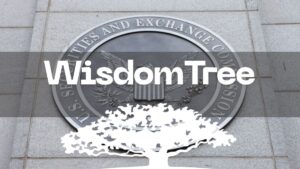TL;DR
- Bo Hines resigns: The White House Crypto Council head steps down after a term marked by a 166-page blueprint, Bitcoin reserve progress, and the GENIUS Act’s stablecoin framework, earning industry praise and shifting to an AI advisory role.
- Patrick Witt expected as successor: Hines’s deputy and current acting director at the Pentagon’s Office of Strategic Capital is poised to take over, with a background indicating policy continuity and focus on execution in banking, stablecoins, and market oversight.
- Key developments to watch: Confirmation of leadership change, the shape of interagency coordination, and continuation of industry roundtables could influence GENIUS Act rollout and Bitcoin reserve design.
Bo Hines, the executive director of the White House Crypto Council, has stepped down and will go back to the private sector. He described his time in the role as “the honor of a lifetime” and commended his collaboration with AI and Crypto Czar David Sacks. Appointed in December 2024, he announced the move Saturday in a post on X.
Serving in President Trump’s administration and working alongside our brilliant AI & Crypto Czar @DavidSacks as Executive Director of the White House Crypto Council has been the honor of a lifetime. Together, we have positioned America as the crypto capital of the world. I’m…
— Bo Hines (@BoHines) August 9, 2025
A tenure that moved fast
During his tenure, Hines helped stand up the council born from an early executive order and led a working group that produced a 166-page policy blueprint covering taxation and banking. He also contributed to the creation of a Bitcoin strategic reserve and supported the GENIUS Act, which was signed in July to set up a federal stablecoin framework.
Ripple effects and industry response

Crypto industry leaders responded quickly. Coinbase CEO Brian Armstrong expressed gratitude to Hines for his dedication and influence, while MARA Holdings chairman Fred Thiel commended his contributions to the nation and the cryptocurrency industry. Hines will continue as a special government employee to support AI projects with David Sacks throughout the transition.
Meet the likely successor
Hines’s deputy, Patrick Witt, is expected to replace him, according to journalist Eleanor Terret, though no formal timeline has been announced. Witt is currently the acting director of the Office of Strategic Capital at the Department of Defense, where he invests in new technologies. Before government service, he played quarterback at Yale and briefly signed with the New Orleans Saints.
What changes now
If Witt takes the helm, policy continuity is the base case given his proximity to Hines and the council’s roadmap. Expect emphasis on implementing the GENIUS Act’s stablecoin provisions, clarifying bank compliance pathways, and translating the 166-page blueprint into sequenced rulemaking and guidance. The Bitcoin reserve initiative will be a key test of operational design, custody, and transparency standards that agencies can defend to markets and Congress.
Watch for a formal confirmation signal, the shape of interagency working groups, and whether industry roundtables remain a fixture of the process. Markets may interpret a smooth handoff as constructive for regulatory clarity, while delays could widen uncertainty premiums for issuers, exchanges, and banks that serve token businesses today.










